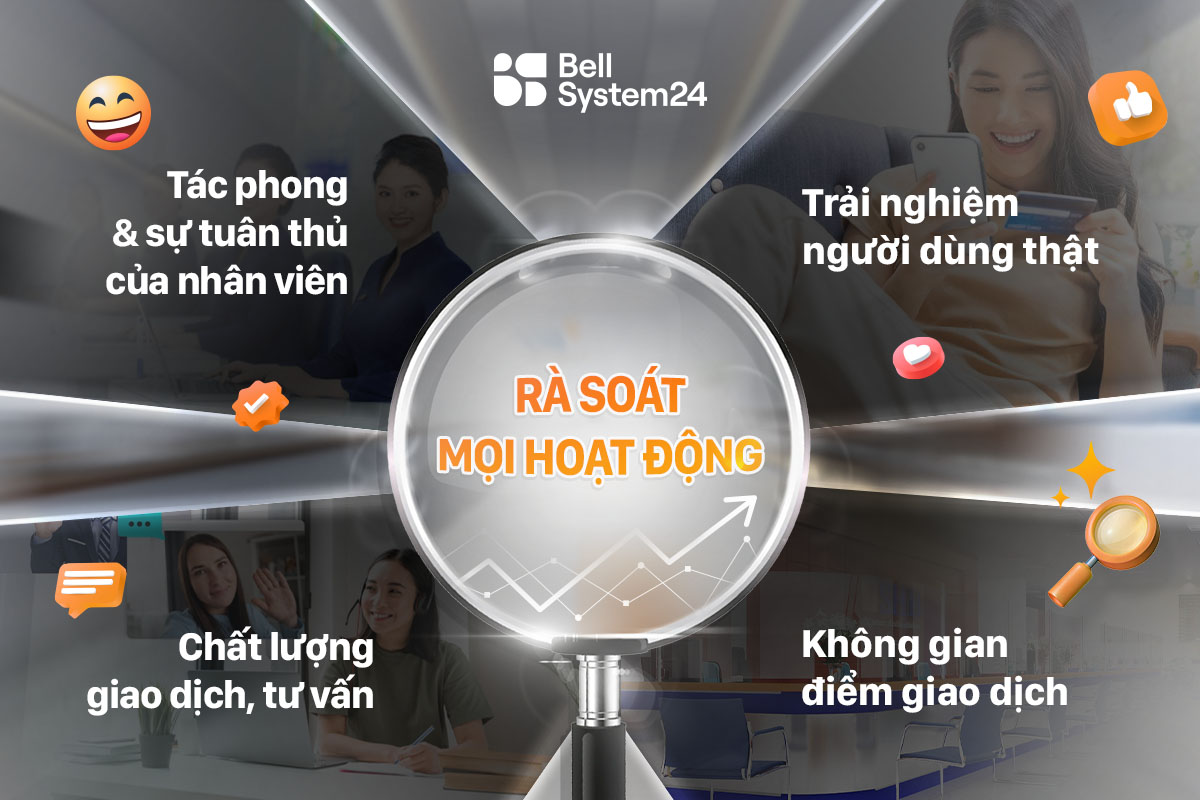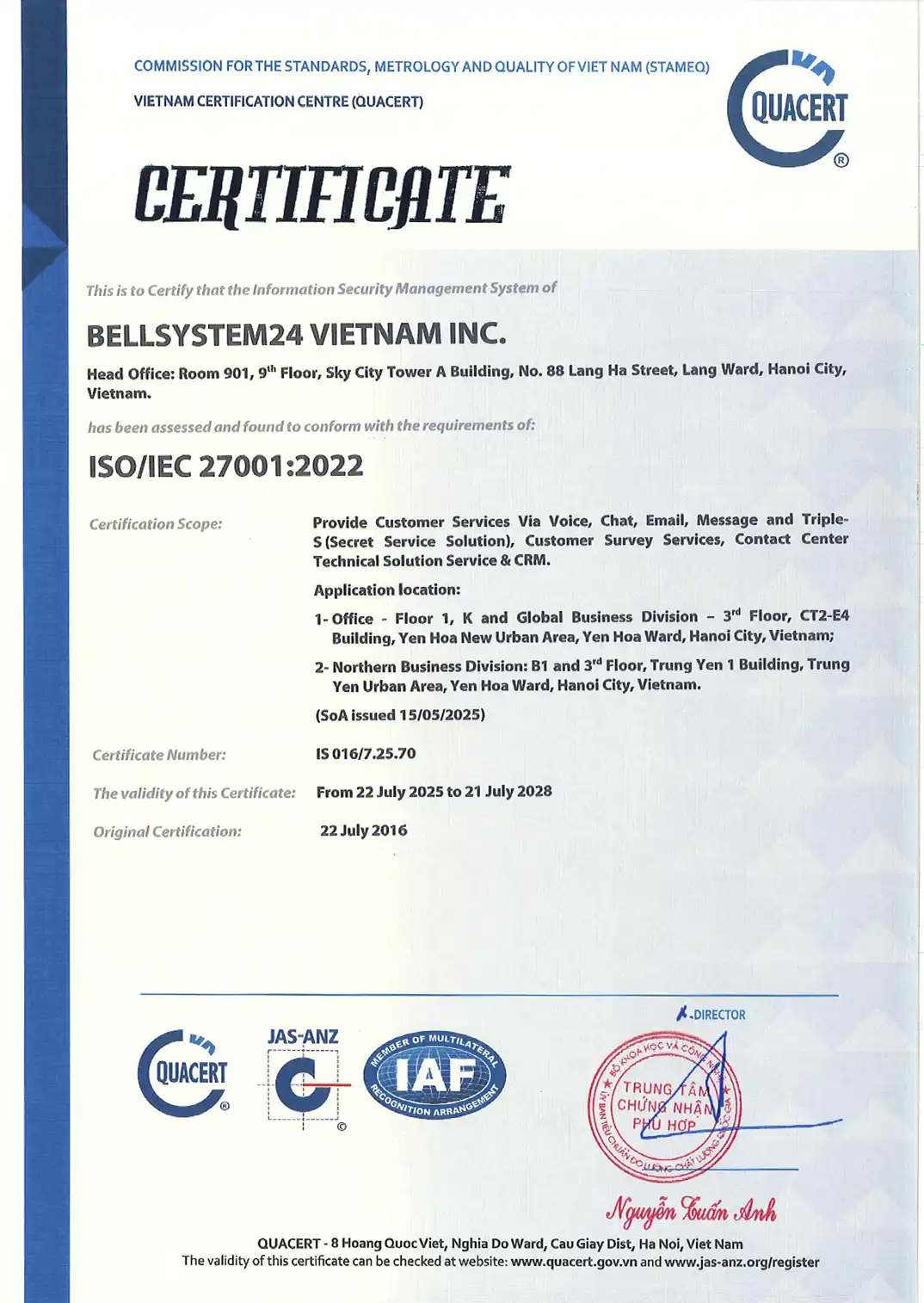Management and supervision of sales staff are typically based on three evaluation factors:
- Evaluate sales performance based on data. (Quantitative)
- Assessing attitude and work ethic (Qualitative)
- Assess compliance with procedures and regulations.
1. Why is supervising sales staff important?
Sales staff are the bridge between the company and customers, playing a decisive role in revenue and customer experienceHowever, it is not easy for businesses to manage synchronously without effective methods, and they may encounter problems such as:
- Uneven work performance among employees.
- Fraud, loss of goods or revenue.
- Failure to comply with sales procedures and internal regulations.
- Poor customer service affects the brand image.
Therefore, implementing reasonable monitoring methods will help businesses control service quality and optimize business performance.
To avoid creating pressure on employees by making them feel "monitored," businesses should establish proactive employee management and evaluation mechanisms before implementing strict monitoring measures.
See also: Key performance indicators for sales teams that businesses should know
2. Develop a model for managing and supervising the sales force

Build a sales team organizational model based on stratification and regional division. In which:
- Business Director (or Operations Director): Responsible for the overall business performance of the entire system.
- Sales Manager: Effectively manage stores in assigned regions.
- Supervisor (Supervisor): Responsible for monitoring the performance and compliance of employees in the assigned area/store.
- Salesperson: Responsible for sales, ensuring personal performance and compliance with company regulations.
3. Methods for supervising sales staff
3.1. Performance evaluation based on KPIs
This is an effective approach that should be implemented first, providing transparency and fairness, helping to focus on the main objectives of sales staff.

See details: Sales employee performance evaluation KPI
To further motivate employees, businesses can also implement competition programs or sales incentives, helping employees set clear goals and boosting their morale.
3.2. Direct observation at the store
A traditional but still very effective method is direct management, observing employees during their work:
- Evaluate service attitude and customer consultation methods.
- Check how employees handle difficult situations.
- Record work performance by time frame.
Advantages: Intuitive, practical assessment, easy to adjust when needed.
Disadvantages: Time-consuming, unable to monitor all employees at the same time.
3.3. Using sales management software
Currently, many businesses use technology to monitor sales activities. Some popular software programs:
- KiotViet, Sapo, Haravan: Helps track sales by employee.
- CRM (Customer Relationship Management): Track consultation history and customer care.
- Fingerprint/Face Recognition Time Tracking Software: Work Hours Management.
Advantages: Real-time data monitoring, transparency, error reduction.
Disadvantages: Requires initial investment and employee training.
3.4. Surveillance camera
Installing cameras in stores allows managers to easily monitor remotely:
- Observe the work attitude of employees.
- Check inventory status, organize goods.
- Prevent internal fraud.
Advantages: Save effort, track multiple points of sale simultaneously.
Disadvantages: Employees may feel overly controlled; use appropriately.
3.5. Secret service inspection by anonymous customers
Mystery shopping helps evaluate service quality honestly:
- Assign internal staff or hire mystery shopping service Playing the role of a customer to assess service attitude.
- Report back on employee attitudes, sales processes, and overall experience.
- Suggest improvements if deficiencies are found.
Advantages: Accurately reflect the quality of service that customers actually receive.
Disadvantages: Professional organizational experience is required to ensure objectivity.
4. Tips for effectively supervising employees without creating pressure

- Open communication: Don't just supervise; guide and support employees in developing their skills.
- Recognition and rewards: Encourage employees when they do well to motivate them.
- Continuing educationProvide training sessions for employees to improve their skills.
- Use tools appropriately: Combine technology and real-world observation for a comprehensive view.
Salesperson evaluation solution
With its strength as a leading company in the field of customer experience operations and training, Bellsystem24 Vietnam provides mystery shopping services with unique values:
- Comprehensive evaluation of sales staff: Process compliance, skills, and sales attitude
- Evaluate based on customer experience rather than just standard yes/no criteria.
- Professional and competent Mystery shopper team. Members are well trained to ensure the most accurate and subtle understanding and perception of the assessment levels.
- Ability to quickly implement projects nationwide. Flexibility to increase or decrease the number of personnel and evaluation areas at any given time.
- Not only stopping at evaluation reports, but also helping to link quality management activities with other customer activities, helping businesses build a complete customer strategy framework.







